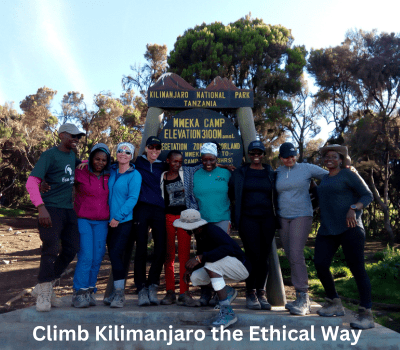Can I Climb Kilimanjaro in Africa Without Prior Mountaineering Experience?
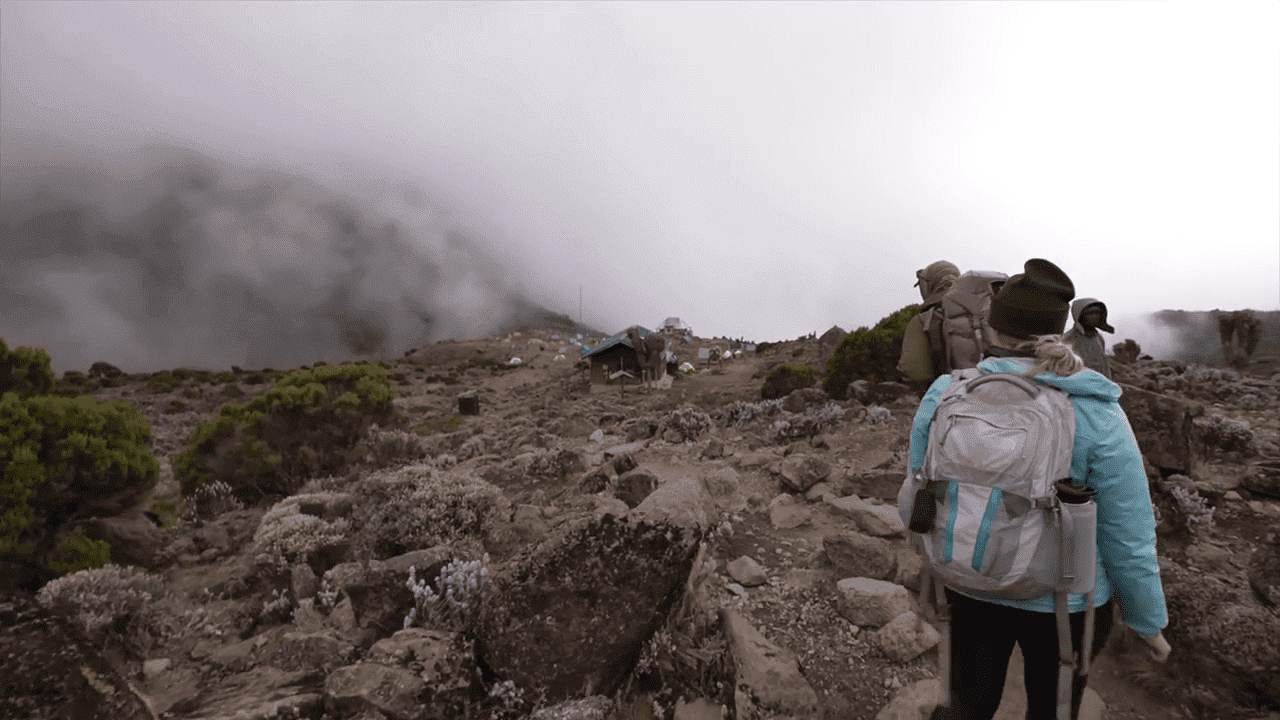
Introduction: The World’s Highest Trekking Peak
Every year, over 30,000 people from across the globe flock to Tanzania to attempt one of the most iconic adventures on earth—climbing Mount Kilimanjaro. Towering at 5,895 meters (19,341 feet), it’s the highest mountain in Africa and one of the famed Seven Summits. But here’s the big question: Can you really summit Kilimanjaro with no prior mountaineering experience?
The answer is a resounding yes. Mount Kilimanjaro is unique among the world’s tallest peaks because it doesn’t require technical climbing skills. You won’t need ropes, harnesses, ice axes, or prior mountaineering knowledge. What you will need is determination, physical preparation, a solid support team, and respect for the mountain’s altitude.
In this guide, we’ll explain why Kilimanjaro is one of the most accessible high-altitude treks in the world—and how first-time climbers reach the summit every day with proper guidance from local experts like Eco-Africa Climbing.
What Makes Kilimanjaro Different From Other Mountains?
Unlike peaks in the Himalayas or Andes, Kilimanjaro is a non-technical trekking mountain. This means it’s essentially a long, high-altitude hike. The trails are well-established, and no mountaineering equipment is required to reach the summit. The biggest challenge isn’t climbing—it’s coping with altitude.
Here’s what makes Kilimanjaro special:
- No technical sections: You walk from start to summit.
- Variety of routes: From scenic and long (like Northern Circuit) to short and direct (like Marangu).
- Diverse ecosystems: You’ll pass through rainforest, moorland, alpine desert, and glacier zones.
- High success rates: With the right operator and acclimatization strategy, first-timers succeed regularly.
This accessibility is what draws both seasoned hikers and complete beginners alike. It’s a mental challenge, a physical achievement, and a deeply emotional journey—all in one.
Do You Need Technical Skills to Summit Kilimanjaro?
No, you do not. Unlike Everest Base Camp, Aconcagua, or Denali, Kilimanjaro does not require any climbing skills or equipment like crampons, ropes, or belays. The entire trek is walkable with proper boots and gear.
The trail to Uhuru Peak, the summit, is steep and demanding—especially on summit night. But you’re not scrambling up vertical rock faces or crossing crevasses. Most climbers use trekking poles, layered clothing, and a daypack. That’s it.
What’s far more important than climbing experience is:
- Cardiovascular endurance
- Mental toughness
- Consistent pace (slow and steady wins!)
- Sticking to a smart itinerary with acclimatization days
Our expert guides at Eco-Africa Climbing are trained to support climbers of all skill levels—including complete beginners. We’ll coach you, encourage you, and safely guide you all the way to the summit.
Fitness vs. Experience: What Matters More on Kilimanjaro?
Experience is great—but fitness is key. You don’t need to be a marathon runner or a gym fanatic, but you should be in good health and able to walk 6–8 hours per day over several days. The real test is endurance, not speed.
Here’s how to prepare:
- Start training 8–12 weeks before your climb
- Focus on long hikes, stair climbs, and weighted walks
- Practice with your daypack and boots
- Include aerobic workouts and strength training
If you’re unsure where to begin, download our free 12-week Kilimanjaro training program. It’s specifically designed for first-timers with no mountaineering background.
Why First-Time Trekkers Can (and Do) Reach the Summit
Thousands of people with zero trekking or climbing experience reach Uhuru Peak every year. That includes:
- Parents with teenage children
- 65+ year-old retirees
- Complete beginners on their first multi-day hike
At Eco-Africa Climbing, we’ve guided countless first-timers to the summit. What they lacked in experience, they made up for in determination, good preparation, and trust in our expert team.
The key? Choose the right route (like 8 Days Lemosho), go with a licensed team, and respect the mountain’s altitude. We’ll help with every detail—from training tips to gear rental to emotional support on summit night.
How to Train for Kilimanjaro If You’ve Never Hiked Before
If you’ve never gone hiking before, don’t panic—Kilimanjaro is still within your reach. Many beginners start their training from zero and succeed with the right mindset and structure. Here’s how to start:
- Start Walking: Begin with short walks around your neighborhood, gradually increasing the duration.
- Add Elevation: Practice on hills or staircases to simulate uphill trekking.
- Hike Regularly: Aim for 3–4 hikes per week, increasing the difficulty each week.
- Try Daypacks: Get used to carrying your Kilimanjaro day pack.
- Simulate Trekking Days: Once per week, do a long hike of 4–6 hours to mimic the actual climb days.
Most importantly, train in the boots and gear you’ll use on the mountain to break them in and avoid blisters. Our guides at Eco-Africa Climbing are always available to help with gear selection, pacing, and motivation.
What’s the Best Route for Beginners?
Not all Kilimanjaro routes are equal. Some are better suited for first-timers due to their gentle elevation gain and extra acclimatization time. Here are our top recommendations:
- 8 Days Lemosho Route – A favorite for beginners, offering a beautiful and gradual ascent with high success rates.
- 9 Days Northern Circuit – The longest route with the best acclimatization profile. Perfect for those who want a quieter trail.
- 7 Days Machame Route – A scenic and popular option, nicknamed the “Whiskey Route.”
Avoid shorter itineraries unless you have experience with high-altitude trekking. Routes like the 5-day Marangu have lower success rates due to rapid altitude gain.
Why Guides and Porters Make All the Difference
For beginners, having a reliable guide team can be the difference between making the summit and turning back early. At Eco-Africa Climbing, our local guides have led thousands of successful climbs. They provide:
- Encouragement: Motivation and pacing to keep you moving
- Monitoring: Daily health checks using pulse oximeters
- Safety: Emergency oxygen, rescue planning, and medical support
- Comfort: Hot meals, tent setup, and gear carrying by trained porters
This allows you to focus on enjoying the journey and conserving energy for summit night. Our clients often say their crew felt like family by the end of the trek.
How Can First-Time Trekkers Handle Altitude?
Altitude sickness can affect anyone, regardless of fitness or experience. That’s why preparation and pacing are more important than prior climbing history. Here’s how beginners succeed:
- Choose a longer route – more days = better acclimatization
- Climb high, sleep low – some routes include acclimatization hikes
- Hydrate constantly – aim for 3–4 liters per day
- Listen to your body – report symptoms to guides immediately
- Consider medication – talk to your doctor about Diamox or altitude pills
Our team monitors your oxygen levels daily and adjusts your pace based on your condition. You’ll never be pushed too fast or left behind. Your safety is our #1 priority.
What Will the Trek Feel Like for a First-Time Climber?
The Kilimanjaro experience is like no other. Over 6–9 days, you’ll journey through five climate zones, from tropical forest to icy summit. Here’s what to expect day by day:
- Day 1–2: Gentle trekking through rainforest, spotting monkeys and birds
- Day 3–5: Moorland and alpine zones, cooler air, and longer days
- Day 6+: High altitude desert, slow pace, acclimatization hikes
- Summit Night: A midnight start, 6–8 hours to Uhuru Peak via headlamp and determination
- Descent: A fast drop in elevation to recover and celebrate
Most trekkers describe summit night as one of the hardest and most emotional challenges of their life—and the most rewarding. Our daily routine and team support help first-timers stay focused and confident every step of the way.
How Important Is Mental Strength for New Trekkers?
Climbing Kilimanjaro is 60% mental, 40% physical. You don’t need to be a triathlete—you need to be mentally tough. The altitude, cold, and long hours can test your willpower. But if you stay positive and push forward one step at a time, you’ll get there.
Here are a few mental tips:
- Focus on the goal: Visualize yourself at the summit sign
- Break the trek down: Think in hours, not days
- Trust your guide: Let them manage your pace and schedule
- Stay connected: Journal, talk to teammates, take photos
You’ll be amazed at what you’re capable of when you keep your eyes on the prize—and surround yourself with an uplifting crew. At Eco-Africa Climbing, our guides are more than staff—they’re mentors, motivators, and friends.
What Are the Most Common Fears First-Time Climbers Have?
If you’re nervous, you’re not alone. Here are some top concerns we hear—and how we help address them:
- “What if I get sick?” – Our safety systems include oxygen, medical checks, and trained responders
- “What if I can’t keep up?” – We climb slowly (“pole pole”), so everyone stays together
- “What if I forget something?” – We provide a full gear checklist and local gear rentals in Moshi
- “What if I don’t summit?” – We choose routes like Northern Circuit with 95%+ success rates
Our goal is to make first-timers feel prepared, informed, and empowered. From pre-climb briefings to post-summit celebrations, we’ll be there every step.
Real Stories From Climbers With No Experience
Here’s what some of our first-time clients had to say:
“I had never even camped before Kilimanjaro. But the guides at Eco-Africa Climbing were incredible. They believed in me even when I doubted myself—and I made it to Uhuru Peak!” – Sarah, USA
“I trained for 3 months and worried I wasn’t ready. Turns out, you don’t need to be a mountaineer—just go slow, stay hydrated, and listen to your guides. Best experience of my life.” – Leo,UK
“From the hot towels at camp to the cheering at the summit, this trip changed my life. I came with no experience. I left with a summit photo and a full heart.” – Amanda, Australia
You can be next. We’ll help you climb the tallest mountain in Africa—with confidence, care, and a lot of heart.
Conclusion: No Experience? No Problem!
Mount Kilimanjaro is one of the rare places on Earth where ordinary people do extraordinary things. You don’t need ropes, ice axes, or mountaineering skills to reach the summit. What you do need is determination, some smart training, and a trustworthy guide by your side.
Thousands of beginners reach Uhuru Peak every year—and you can be one of them. With Eco-Africa Climbing, you’ll get expert support, ethical service, and a life-changing journey that starts from your first step.
Frequently Asked Questions (FAQs)
Do I need to know how to climb to summit Kilimanjaro?
No. Kilimanjaro is a trekking peak, not a technical climb. You walk the entire route with no ropes or climbing gear required.
How fit should I be?
You should be able to walk 6–8 hours a day for multiple days. Basic aerobic fitness and stamina are key, not athletic experience.
How long does it take to train for Kilimanjaro?
We recommend 8–12 weeks of regular hiking, stair climbing, and cardio. See our training plan for a full guide.
Is it safe for first-timers?
Yes, especially with trained guides and proper preparation. We conduct health checks, provide emergency oxygen, and follow KPAP ethical standards.
Which route is best for beginners?
The 8 Days Lemosho and Northern Circuit offer the best acclimatization and high success rates.
Start Your Kilimanjaro Journey With Confidence
No experience? No worries. Let Eco-Africa Climbing take you to the summit with unmatched care, safety, and support. You’ll never walk alone—and you’ll never forget the view from the top.
Explore our most beginner-friendly routes:
Start your climb by submitting a booking request or contacting us for a personalized quote.
Share:
Related Posts
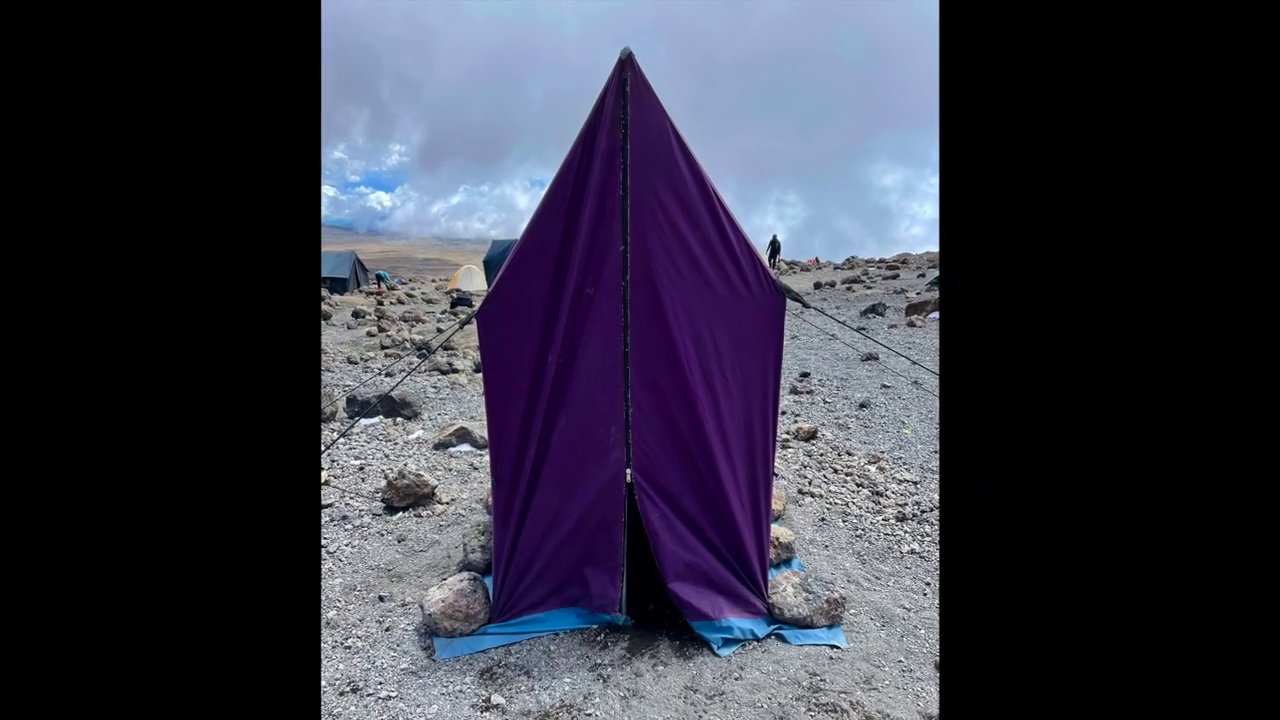
bathroom on mountain kilimanjaro
Bathroom on Mountain Kilimanjaro: What to Expect and How to Prepare Introduction One of the most common — and least discussed — questions from people
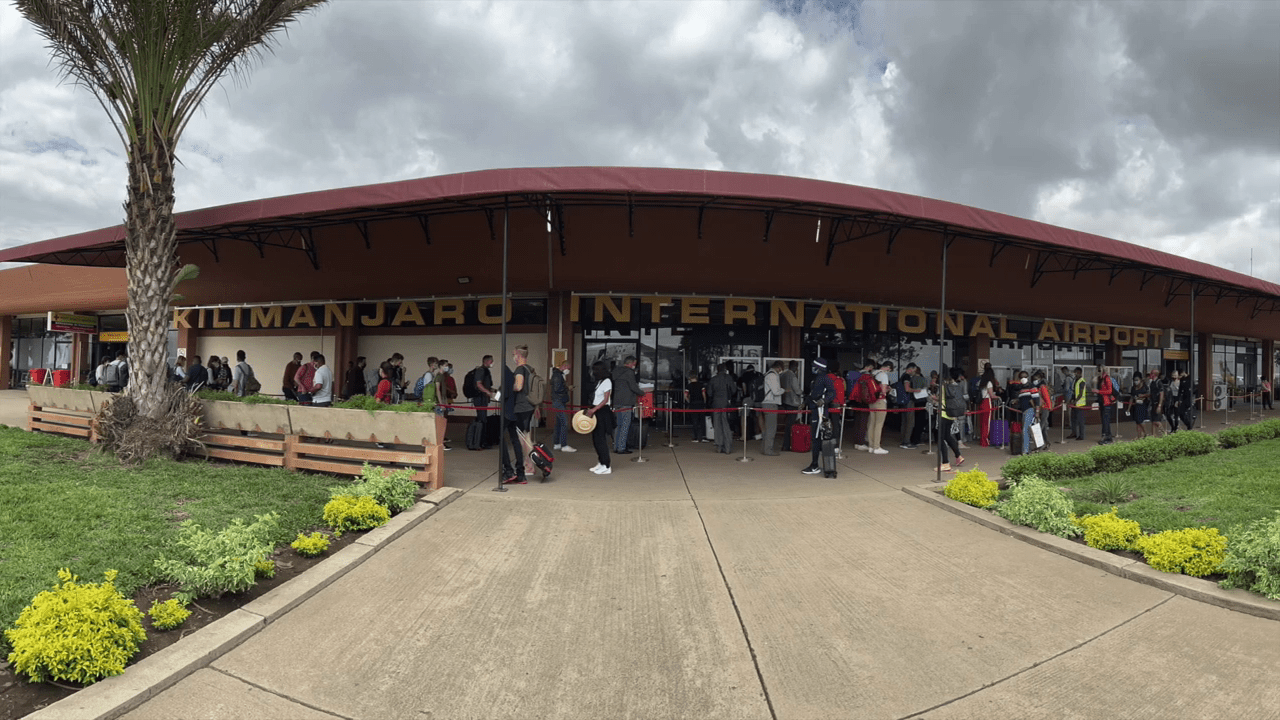
Are Guides Readily Available in Tanzania Without Prior Booking?
Are Guides Readily Available in Tanzania Without Prior Booking? Introduction: Should You Risk Climbing Without Pre-Booking? Climbing Mount Kilimanjaro is a dream for many adventurers.
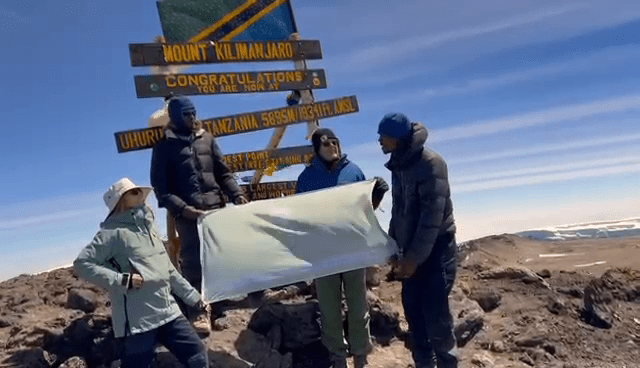
How Can I Find a Reliable Local Guide for My Kilimanjaro Expedition?
How Can I Find a Reliable Local Guide for My Kilimanjaro Expedition? Introduction: Why the Right Guide Is Key to Kilimanjaro Success Climbing Mount Kilimanjaro
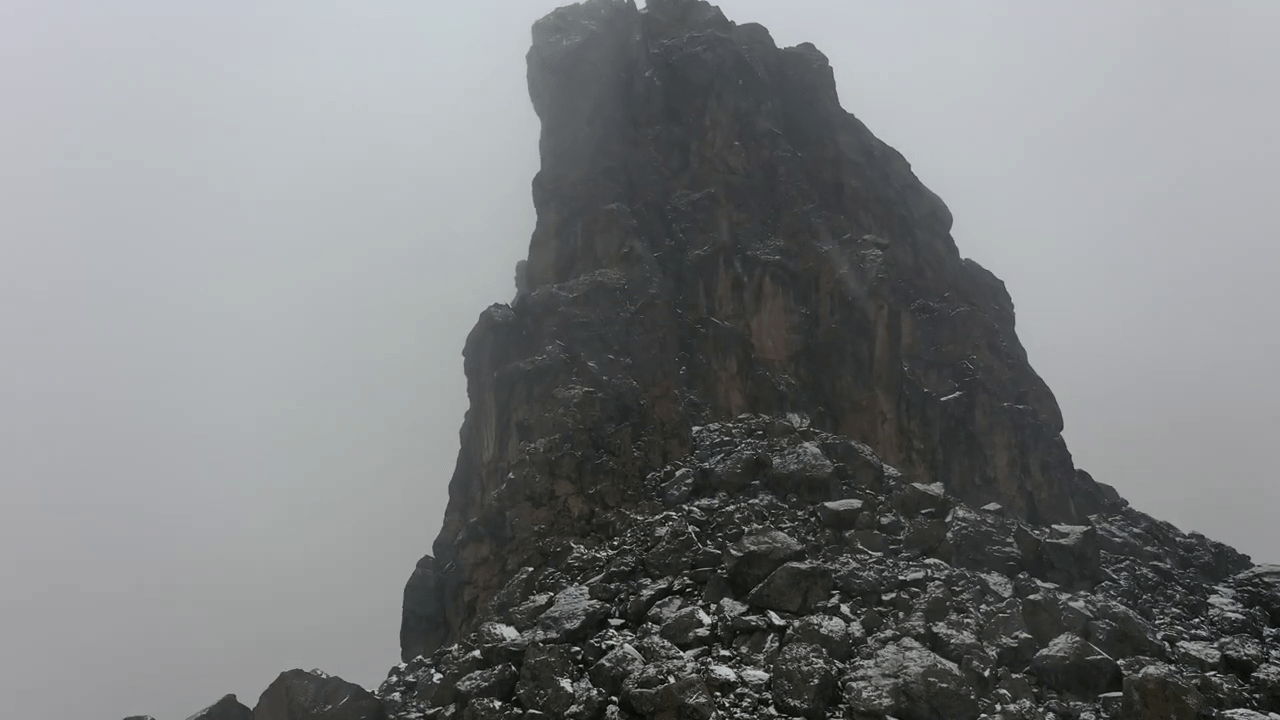
Is Climbing Kilimanjaro Dangerous for Individuals Without Mountaineering Experience?
Is Climbing Kilimanjaro Dangerous for Individuals Without Mountaineering Experience? Introduction: The Myth of Danger and Experience Many aspiring adventurers wonder if climbing Mount Kilimanjaro is
